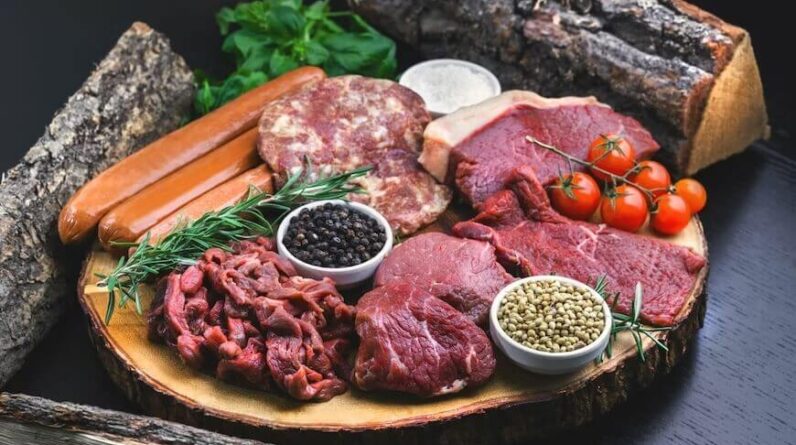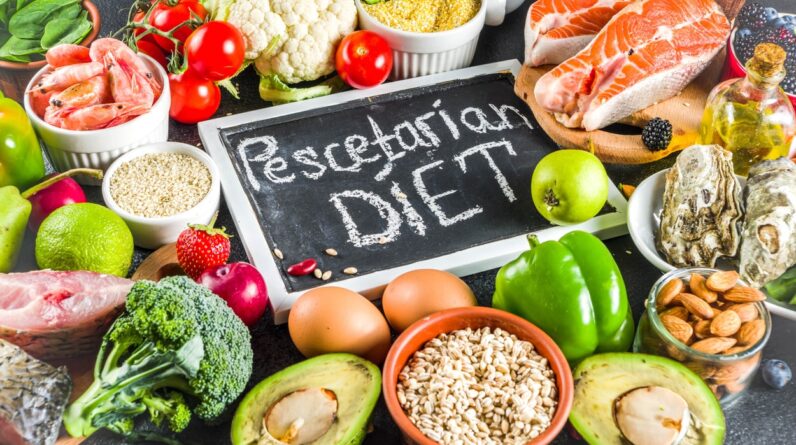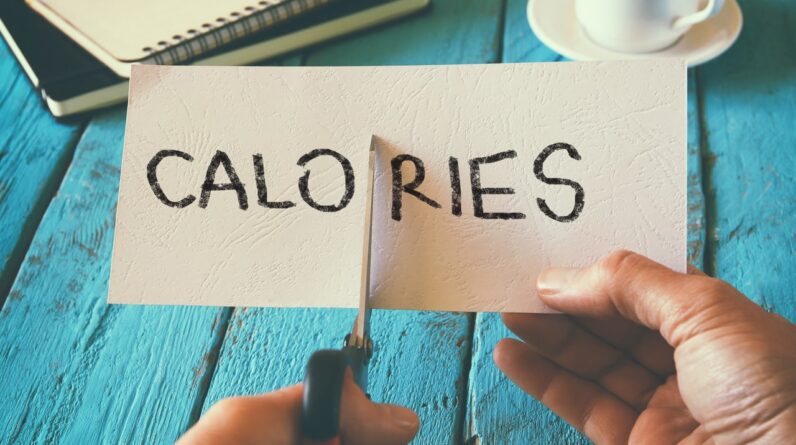
Understanding the varied and expansive landscape of weight loss diets can be overwhelming, yet one common denominator in nearly all effective dietary plans is the incorporation of protein-rich meats. However, it’s important to understand that not all meats are nutritionally identical.
Understanding the disparities between lean and fatty meat cuts is a crucial factor for individuals embarking on a weight loss journey. This article explores meat types, assesses their nutritional values, and deciphers how they can influence weight loss.
Lean Vs. Fatty Cuts
The distinction between lean and fatty cuts of meat essentially comes down to their respective fat and calorie content. This contrast has significant implications for flavor and nutritional value, impacting various aspects of health, including weight management, heart health, and overall nutrition.
Lean meats contain less fat and, consequently, fewer calories. These are typically recommended for weight loss or heart-healthy diets due to their lower saturated fat and calorie content while still providing a high-quality source of protein. Lean meats can also be a good source of essential nutrients like iron, zinc, and vitamin B12.
On the other hand, fatty cuts of meat have higher fat content and, therefore, more calories. While these cuts often provide more flavor due to their fat content, they also contain more saturated fats. However, it’s worth noting that they also contain monounsaturated fats and other essential nutrients. Some fatty cuts, like salmon, also provide beneficial omega-3 fatty acids.
Neither type of meat is inherently ‘bad’ or ‘good.’ They both have a place in a balanced diet. For those specifically aiming to lose weight, leaner cuts may be a more beneficial choice due to their lower calorie content. For those interested in delving deeper into various meat cuts and their nutritional profiles, https://www.gpprimemeats.com/ and other reputable stores offer valuable insights.
Remember that the preparation method can also significantly impact the healthiness of a dish – for instance, grilling or broiling is often healthier than frying.
It’s also important to consider individual nutritional needs, dietary restrictions, and personal preferences. Balance and moderation are always key, and individual dietary choices should fit within the context of overall healthy eating patterns.
Choosing The Right Cuts For Weight Loss
The relationship between meat consumption and weight loss is nuanced, hinging on factors like type, cut, preparation methods, and individual metabolism rates. It’s not just about calories but also about how different cuts of meat can influence your satiety, nutritional intake, and metabolic rate.
- Lean Chicken Breast
Lean chicken breast has long been a staple in many health-conscious individuals’ diets. With its low-fat content, high protein concentration, and versatility in cooking, it’s no wonder that chicken breast is highly popular among those aiming to lose weight.
It’s also an excellent source of essential nutrients like vitamin B6 and niacin, which are vital for the body’s metabolic processes.
However, it’s important to consider how the chicken is prepared. Grilling, baking, or boiling chicken is preferable to frying it, as frying can add significant amounts of fat and calories. Also, remember to remove the skin, as it contains a substantial amount of fat.
It should also be noted that while chicken breast is low in fat, it doesn’t mean it’s entirely devoid of flavor. With the right seasoning and cooking techniques, chicken breast can be a delicious addition to a weight-loss diet.
- Turkey
Turkey is often associated with holiday feasts, but it’s a versatile meat that can be included in everyday meals. It can be used in salads, sandwiches, or even as a substitute for higher-fat meats in certain recipes.
Turkey, especially the lean parts like the breast, is another excellent weight-loss choice. It’s lean, rich in protein, and contains various vitamins and minerals, including B vitamins, selenium, and zinc. These nutrients can aid in muscle development and support overall health.
Just like chicken, the preparation method is vital. Baking, roasting, or grilling is recommended over frying. And, if possible, avoid processed turkey products like sausages or deli meats, as they often contain high amounts of sodium and preservatives.
- Lean Beef
Lean cuts of beef, such as sirloin, tenderloin, or eye of round, are surprisingly low in fat and rich in protein. They’re also high in iron, a mineral that aids in transporting oxygen in the body, and zinc, which supports the immune system.
However, not all beef is created equal. Fattier cuts of beef, like ribeye or T-bone steaks, are higher in saturated fat and calories. When selecting beef for a weight loss diet, looking for lean cuts and controlling portion sizes is essential.
Moreover, like other meats, the cooking method matters. Grilling, broiling, or roasting lean beef without adding extra fat or oil will decrease the calorie count.
- Pork Tenderloin
Despite pork’s reputation as a fatty meat, certain cuts, like pork tenderloin, are quite lean. It’s a good source of protein and provides a host of vitamins and minerals such as thiamin, niacin, and selenium.
As always, preparation is key. Pork tenderloin is best roasted or grilled. Avoid frying or breading it, as this can significantly increase the fat and calorie content.
Pork tenderloin can be an enjoyable change for those tired of chicken or turkey. Its distinct flavor and texture can add variety to a weight loss diet, making it easier to stick to the plan.
- Venison
Venison, or deer meat, is a fantastic lean meat option. It’s incredibly high in protein and offers significant amounts of iron and vitamin B12. Additionally, venison is lower in fat than beef and even some cuts of chicken.
However, venison might be more challenging to source than other types of meat. It also has a gamey flavor that some people may need time to get used to.
Despite these challenges, venison can be an excellent choice for those looking for a lean, flavorful, and nutrient-dense meat option for their weight-loss diet.
- Rabbit
Rabbit meat is lean, low in cholesterol, and high in protein. It also contains essential nutrients like selenium, phosphorus, and B vitamins.
While not as commonly consumed as chicken or beef, rabbit can be a lean alternative. It can be prepared in much the same way as other lean meats, avoiding frying and excessive use of oils.
One hurdle might be its availability and a certain level of unfamiliarity with its preparation and taste. However, rabbit meat can be an excellent lean meat option for those willing to step outside their comfort zone.
- Lean Ground Meats
Whether chicken, turkey, beef, or pork, ground meats can be an excellent part of a weight loss diet if chosen wisely. Always opt for ground meat that is at least 90% lean, and pay close attention to portion sizes, as calories can add up quickly.
Again, cooking methods can greatly impact the nutritional profile. Using lean ground meat in recipes like chili, meatloaf, or lettuce wraps can provide a satisfying, protein-rich meal without the excess calories from fat.
However, processed ground meats often contain fillers and added sodium. Always check the labels to ensure you’re getting the leanest and most natural product available.
- Fish And Seafood
Fish and seafood offer a wealth of weight-loss-friendly options. From lean white fish like cod or haddock to fatty fish like salmon or mackerel, seafood can be a delicious way to meet protein needs.
Lean white fish are low in fat and calories but high in protein, making them ideal for weight loss. However, despite their higher fat content, fatty fish are rich in omega-3 fatty acids, which are beneficial for heart health and may even assist in weight loss by regulating hunger signals.
Seafood is also typically high in essential nutrients like iodine, selenium, and B-vitamins. Therefore, including a variety of seafood in a weight loss diet can provide numerous health benefits while helping to manage weight.
- Bison
Bison is another lean meat that can be an excellent weight-loss option. Lower in fat and calories than beef, bison also boasts a rich nutrient profile with high protein content and significant amounts of iron, zinc, and B vitamins.
Like other meats, selecting lean cuts and using healthy cooking methods will yield the best results. As bison is leaner than beef, it’s important not to overcook it to avoid toughness.
While not as readily available as chicken or beef, bison’s growing popularity means it is increasingly available in many grocery stores and online.
- Lamb
Lamb, especially lean cuts like the loin, shank, and leg, can be part of a weight loss diet. High in protein and packed with essential nutrients like iron, zinc, and vitamin B12, it is a nutritionally rich choice.
However, lamb contains more saturated fat than other meats on this list, so portion control is crucial. As with other meats, opt for roasting, grilling, or broiling over frying.
Lamb’s unique flavor can offer a welcome change in a dietary regimen, providing variety to make a weight loss journey more enjoyable.
Conclusion
The type of meat you choose can be a pivotal factor in the efficacy of a weight loss regimen. It’s essential to grasp the distinctions between lean and fatty cuts, aiming for protein-rich options, minimally fatty and abundant in vital nutrients.
Yet, it’s not just about the cut; how it’s cooked matters immensely. Preparing lean cuts without excessive added fats seamlessly fits into a weight-conscious diet.
As you integrate these selections into your meals, consider complementing them with a balance of vegetables and whole grains for a holistic approach to wellness. And, as with all foods, moderation is key — always be mindful of portion sizes.







